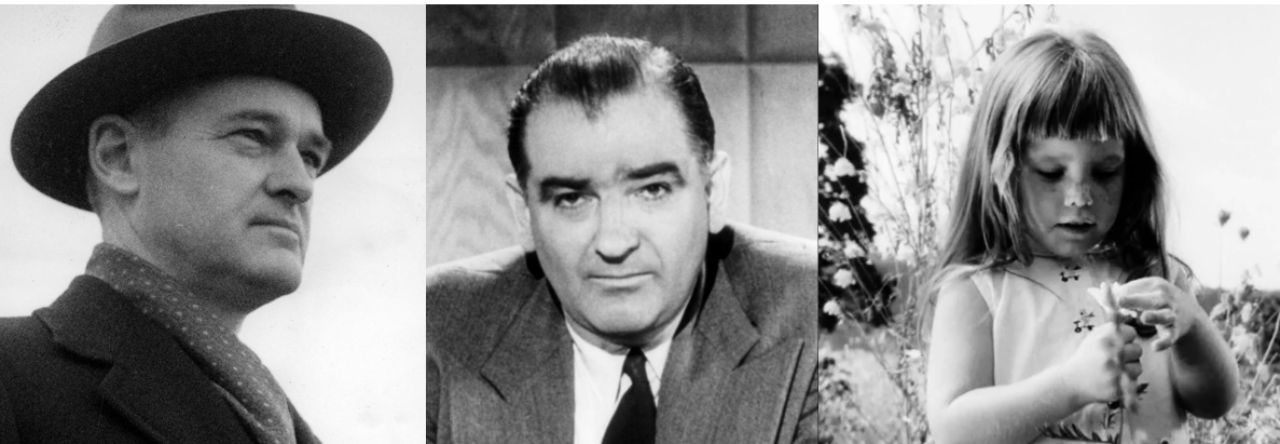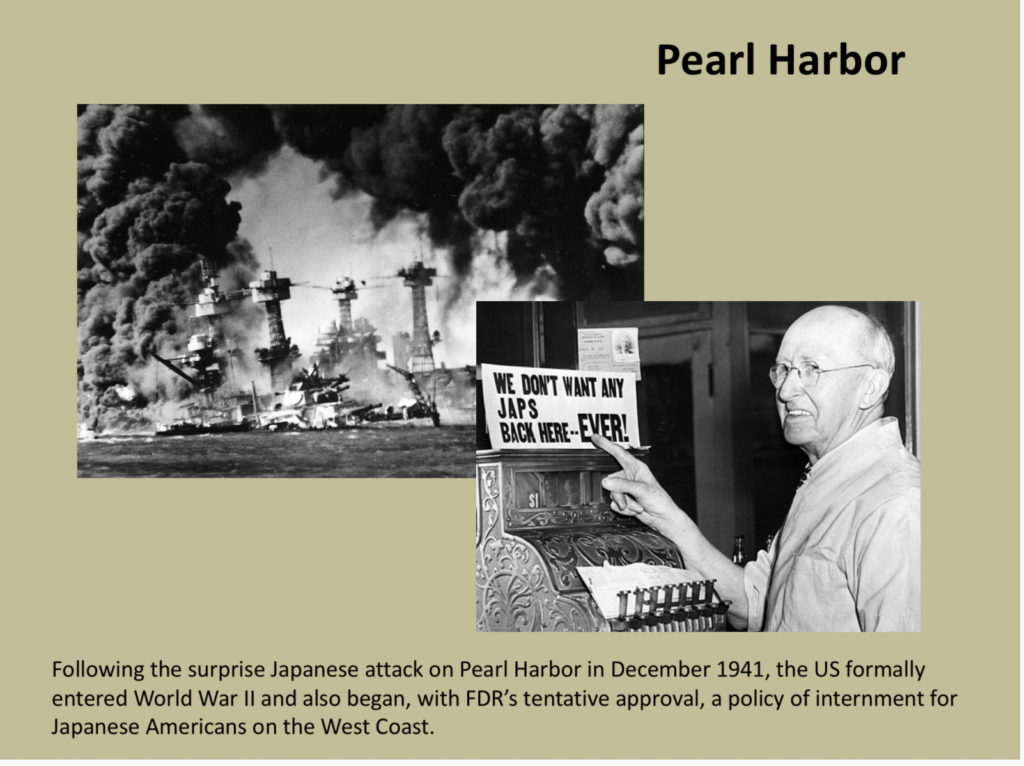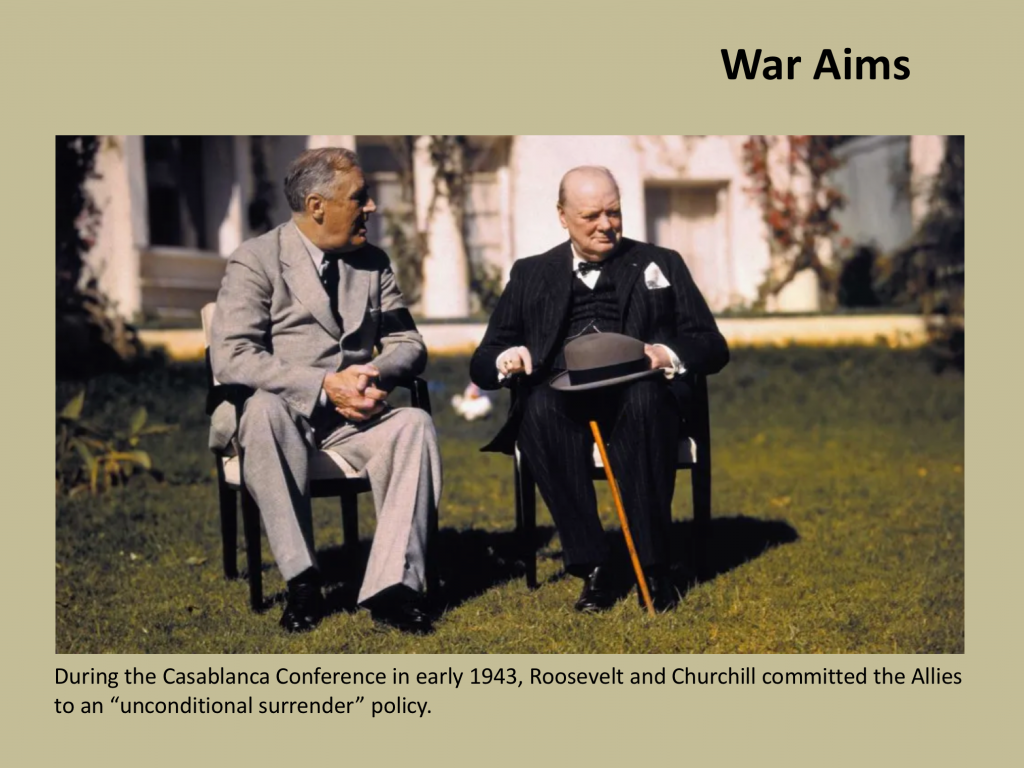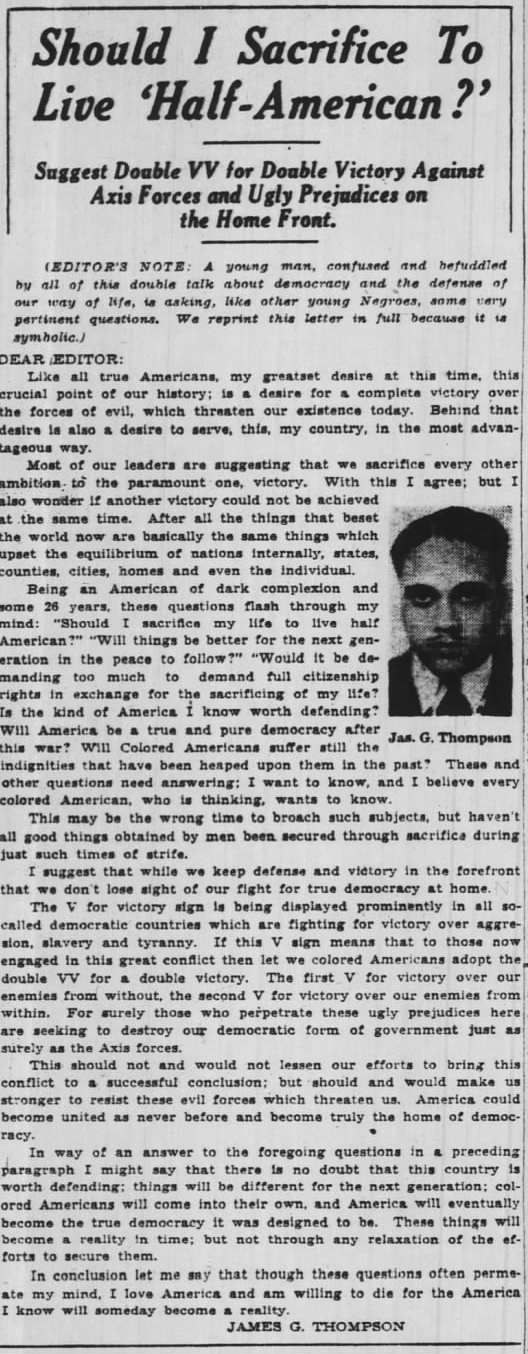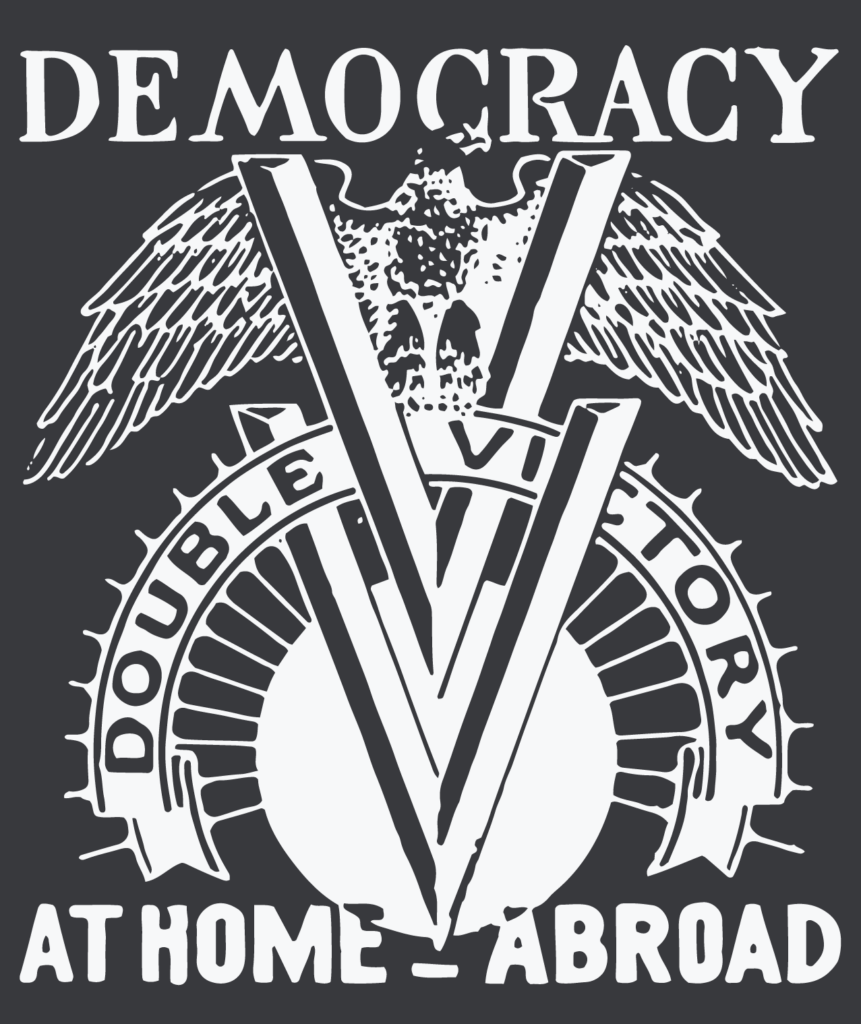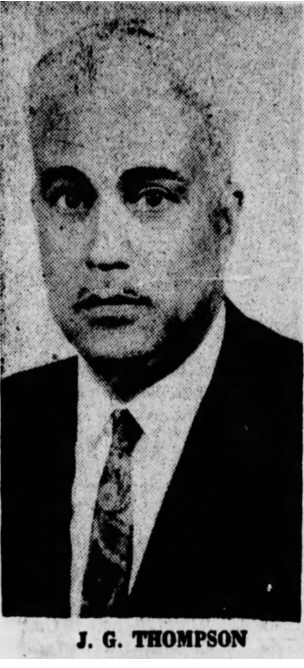What lessons did Americans learn from World War II?
Thesis Framework
“The United States entered the war in a crippling economic depression and exited at the beginning of an unparalleled economic boom. The war had been won, the United States was stronger than ever, and Americans looked forward to a prosperous future. And yet new problems loomed. Stalin’s Soviet Union and the proliferation of nuclear weapons would disrupt postwar dreams of global harmony. Meanwhile, Americans who had fought a war for global democracy would find that very democracy eradicated around the world in reestablished colonial regimes and at home in segregation and injustice. The war had unleashed powerful forces that would reshape the United States at home and abroad.” —American Yawp
American Yawp, chapter 24, World War II
- I. Introduction
- II. The Origins of the Pacific War
- III. The Origins of the European War
- IV. The United States and the European War
- V. The United States and the Japanese War
- VI. Soldiers’ Experiences
- VII. The Wartime Economy
- VIII. Women and World War II
- IX. Race and World War II
- X. Toward a Postwar World
- XI. Conclusion
- XII. Primary Sources
Image Gateway
Timeline
- 1941 // Japanese attack Pearl Harbor
- 1942 // FDR authorizes internment policies for Japanese-Americans
- 1943 // US Congress repeals Chinese Exclusion Act
- 1944 // Supreme Court authorize and limits Japanese internment
- 1945 // US drops atomic bombs on Hiroshima and Nagasaki
Featured Document: Executive Order No. 9066 (1942)
“Now, therefore, by virtue of the authority vested in me as President of the United States, and Commander in Chief of the Army and Navy, I hereby authorize and direct the Secretary of War, and the Military Commanders whom he may from time to time designate, whenever he or any designated Commander deems such action necessary or desirable, to prescribe military areas in such places and of such extent as he or the appropriate Military Commander may determine, from which any or all persons may be excluded, and with respect to which, the right of any person to enter, remain in, or leave shall be subject to whatever restrictions the Secretary of War or the appropriate Military Commander may impose in his discretion. The Secretary of War is hereby authorized to provide for residents of any such area who are excluded therefrom, such transportation, food, shelter, and other accommodations as may be necessary, in the judgment of the Secretary of War or the said Military Commander, and until other arrangements are made, to accomplish the purpose of this order….
Franklin Delano Roosevelt, February 19, 1942
- Korematsu v. US (1944) (Densho Encyclopedia)
- Ex parte Endo (1944) (Densho Encyclopedia)
Discussion Question
- Just over one week before issuing this executive order, FDR advised his secretary of war during a recorded phone call that regarding the prospect of internment for Japanese alien residents and Japanese Americans, “Be as reasonable as you can.” Why would FDR and so many other policy-makers at this time consider such an order to be “reasonable”?
Case Study: Summit Diplomacy
“It was the Soviet Union that broke Hitler’s army. Twenty-five million Soviet soldiers and civilians died during the Great Patriotic War, and roughly 80 percent of all German casualties during the war came on the Eastern Front.” –American Yawp
Casablanca Conference (1943)
“In North Africa in 1942, British victory at El Alamein began pushing the Germans back. In November, the first American combat troops entered the European war, landing in French Morocco and pushing the Germans east while the British pushed west.7 By 1943, the Allies had pushed Axis forces out of Africa. In January President Roosevelt and Prime Minister Churchill met at Casablanca to discuss the next step of the European war. Churchill convinced Roosevelt to chase the Axis up Italy, into the “soft underbelly” of Europe. Afterward, Roosevelt announced to the press that the Allies would accept nothing less than unconditional surrender.” –American Yawp
Discussion Question
- Why was the call for “unconditional surrender” an attempt to avoid the “mistakes” of World War I?
“At Tehran in 1943, Roosevelt and Churchill convinced Stalin to send a Soviet delegation to a conference at Dumbarton Oaks, in the Georgetown neighborhood of Washington, D.C., in August 1944, where they agreed on the basic structure of the new organization. It would have a Security Council—the original Four Policemen, plus France—which would consult on how best to keep the peace and when to deploy the military power of the assembled nations. According to one historian, the organization demonstrated an understanding that “only the Great Powers, working together, could provide real security.” But the plan was a kind of hybrid between Roosevelt’s policemen idea and a global organization of equal representation. There would also be a General Assembly, made up of all nations; an International Court of Justice; and a council for economic and social matters. Dumbarton Oaks was a mixed success—the Soviets especially expressed concern over how the Security Council would work—but the powers agreed to meet again in San Francisco between April and June 1945 for further negotiations. There, on June 26, 1945, fifty nations signed the UN charter…. German counterattacks in the east failed to dislodge the Soviet advance, destroying any last chance Germany might have had to regain the initiative. 1945 dawned with the end of European war in sight. The Big Three met again at Yalta [in February 1945] in the Soviet Union, where they reaffirmed the demand for Hitler’s unconditional surrender and began to plan for postwar Europe. The Soviet Union reached Germany in January, and the Americans crossed the Rhine in March. In late April American and Soviet troops met at the Elbe while the Soviets pushed relentlessly by Stalin to reach Berlin first and took the capital city in May, days after Hitler and his high command had died by suicide in a city bunker. Germany was conquered. The European war was over. Allied leaders met again, this time at Potsdam, Germany, [in July 1945] where it was decided that Germany would be divided into pieces according to current Allied occupation, with Berlin likewise divided, pending future elections. Stalin also agreed to join the fight against Japan in approximately three months.” –American Yawp
Case Study: Double V Campaign
The famous letter (Pittsburgh Courier, January 31, 1942)
James Gratz Thompson (born 1915, age 26)
Career details on Thompson
-
James G. Thompson came to Pittsburgh in late 1942 to help coordinate Double V campaign for the Courier before enlisting in US Army where he served from 1943 to 1946, along with more than one million other African Americans. Thompson served both stateside and overseas, with tours of duty in the India-Burma theater.
- Married Erma Hortense Britt in 1944 in San Bernadino, CA and lived in Los Angeles California, working for a time as a salesman for a vacuum company while she was a typist. They appear to have divorced in the 1960s.
- In 1950, Thompson was denied a pension because he had enlisted from Pennsylvania without being resident long enough.
-
In 1969, J. Gratz Thompson was named as a coordinator for the Human Resources Corporation in Kansas City, MO after recently serving as a youth supervisor at a local boys home and as a substitute teacher. The article called him a newspaperman, included a photo, and stated that he had most recently worked on the news desk of the Las Vegas Sun. No mention of the Double V campaign.
- James G. Thompson died in Wichita in 1999. His death notice in the Wichita Eagle, October 15, 1999, listed him as journalist but made no mention of the Double V campaign.
Memory & Meaning
America First Committee (1940)
“Charles Lindbergh won international fame in 1927 after completing the first non-stop, solo flight across the Atlantic Ocean. As Hitler’s armies marched across the European continent, many Americans began to imagine American participation in the war. Charles Lindbergh and the America First Committee, advocating “America First,” championed American isolationism.” —American Yawp
“There are many … interventionists in America, but there are more people among us of a different type. That is why you and I are assembled here tonight. There is a policy open to this nation that will lead to success–a policy that leaves us free to follow our own way of life, and to develop our own civilization. It is not a new and untried idea. It was advocated by Washington. It was incorporated in the Monroe Doctrine. Under its guidance, the United States became the greatest nation in the world. It is based upon the belief that the security of a nation lies in the strength and character of its own people. It recommends the maintenance of armed forces sufficient to defend this hemisphere from attack by any combination of foreign powers. It demands faith in an independent American destiny. This is the policy of the America First Committee today. It is a policy not of isolation, but of independence; not of defeat, but of courage. It is a policy that led this nation to success during the most trying years of our history, and it is a policy that will lead us to success again.” –Charles Lindbergh, 1941
